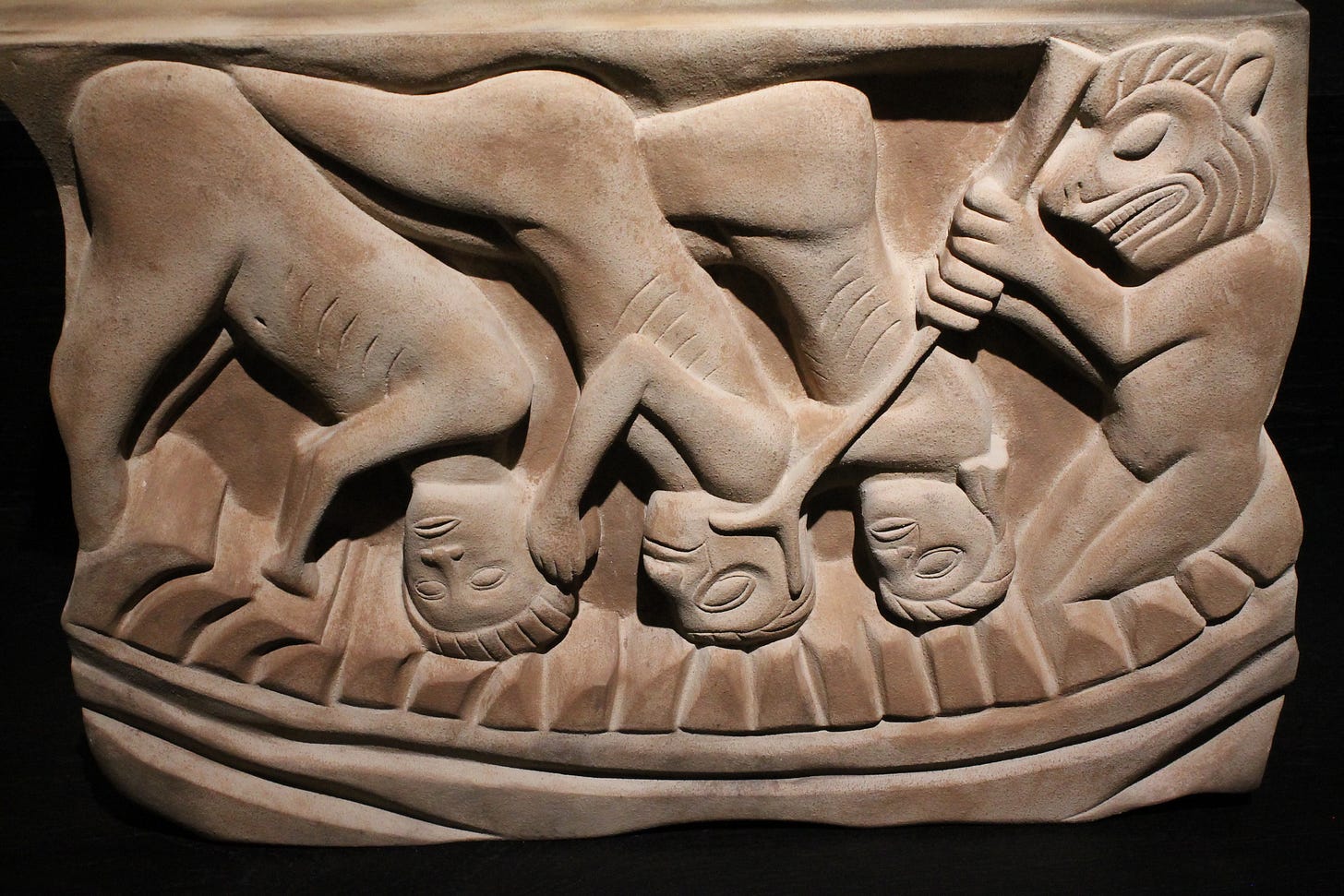Okay, so I knew I was tempting fate...
The failure of plans - and how we respond to them informs who we are as writers.
A week ago I published a post about ‘horizons’, using it to lay out what my next few writing weeks were looking like. It was a schedule, a plan. Yet even as I pressed ‘post’ I understood the risk I was running, challenging Fate to do its worst. Perhaps I thought that by acknowledging “there’s the unknown that will be lurking on or just over the horizon” I might have been signing up to an informal kind of insurance against disruption…
How wrong I was.
Who would have thought that elements of the plan would end up being scuppered by blood?
In the last 10 days I have suffered from multiple nosebleeds (two of which while asleep) which means I have been spending my waking hours more on edge than usual. Significantly, these episodes — or, more accurately, the threat of them — has forced me to pull out of a mentoring gig at a Writers’ Retreat, reading at a poetry event, and next week I will be cancelling all the accommodation for my Scotland Road trip.
The physical remedy is simple enough: nasal cauterisation. Brief, but painful. However, I’m told that waiting times on the NHS are 4 months for urgent cases, 12 months otherwise; and ignoring the significant cost of the self-funded alternative, even our local private hospital can’t manage to schedule an initial consultation in the next 4 weeks…
Faced with this situation, I confess to having been feeling sorry for myself over the last few days. But then yesterday morning — with an opportunity to attend a poetry group in the afternoon — I decided I couldn’t let a temporary physical frailty define me. So I went to the group (which was good), then came back and started writing this.
No blood was shed during the process!
Stand back. Take stock. Make a more ‘appropriate’ plan.
Plans often go awry. As Human Beings this is a fact of life. Such disruptions could be trivial — we miss a bus, or the supermarket doesn’t have a key ingredient we need for that evening’s dinner — or extend to the extremely damaging and disrupting. As Writers, we are often betrayed by our own work: a plot-line lets us down; a character doesn’t materialise in the way we’d hoped; a poem refuses to hit the mark, no matter how many drafts we try.
Whether these are ‘trivial’ or ‘damaging and disrupting’ depends on context: what they are, where they occur, and their impact on the larger work. At one end of the spectrum they might mean we merely need to find a different way to solve a problem (say in plot, character or rhyme), and at the other, force us to abandon a project entirely.
Yet more than that, how we respond — what happens next — is about us, our philosophy as a writers, our relationship both to our work and to ourselves.
I admit I was feeling a little despondent when I re-looked at my plan in the ‘Horizons’ post; but taking a step back, things are nowhere near that bleak. Yes, the retreat and readings are gone (and for good, as they were time-bound), but I should see the Scotland road-trip as merely a postponement; there are many more weeks in the year in which to undertake it.
More than that, none of my writing projects (other than the as yet undefined one based on said road-trip) have been impacted: I’ve nearly finished the first edit (of two) for a new edition of The Big Frog Theory; after that, I’ll start the first major redraft of a new novel (I finished the first draft early!); and I already have the proof copy for the New Contexts: 7 anthology.
The remainder of my ‘To Do’ list remains intact. Indeed, I may be just about to add a new Coverstory books project to it. So really, there’s no need to be despondent.
Maybe what this little episode demonstrates is the fundamental notion that, when it comes to our writing, how we react to setbacks — and what these may or may not do to our work — is driven by how we define ourselves, our definition of ‘opportunity’, and the context we create for ourselves and within which we work.
There are myriad ways to define yourself as ‘a writer’ — and perhaps just as many options when it comes to slotting that part of yourself alongside all the other people you are: father/mother, husband/wife etc. Such considerations — the whole breadth of what makes us up — will contribute to any ‘plan’ we craft for ourselves, and to what we see when we look in the mirror each morning. Indeed, understanding that — how we choose to define ourselves — is fundamental to living a successful writing life.
Oh, and key to putting together a plan that is achievable and of which we can be proud.







Hope they speed up the treatment! And plan ahead for that Scotland trip - remember, it's important.
Bless you Ian x